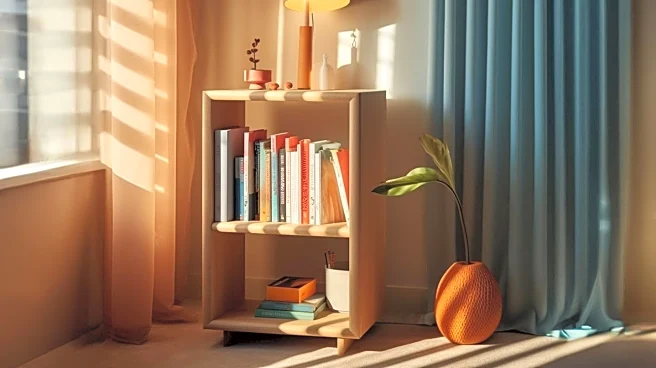What's Happening?
The concept of 'depression rooms' is gaining attention on social media, highlighting how depression can affect one's living space. These rooms are characterized by clutter and disorganization, reflecting the mental state of individuals experiencing depressive episodes. Mental health professionals, such as Dayton Olsen and Kobe Campbell, explain that these rooms are not a result of laziness but rather a manifestation of the internal struggles faced by those with depression. The clutter serves as a mirror to the chaos within, making it difficult for individuals to maintain their environment. The trend of sharing 'depression room' clean-up videos aims to break the cycle of negative thoughts and behaviors associated with depression, offering a form of behavior activation to improve mental health.
Why It's Important?
Understanding the link between mental health and physical environment is crucial for addressing depression. 'Depression rooms' can serve as a visual indicator of one's mental state, prompting individuals to seek help or make changes. The trend encourages people to engage in small acts of tidying, which can signal safety to the nervous system and potentially improve emotional health. By recognizing the signs of a 'depression room,' individuals can take proactive steps to manage their mental health, reducing feelings of shame and isolation. This awareness can lead to better support systems and treatment options for those struggling with depression.
What's Next?
As the conversation around 'depression rooms' continues, mental health professionals may explore new strategies to incorporate environmental factors into treatment plans. Social media platforms could play a role in spreading awareness and providing resources for those in need. Additionally, there may be increased emphasis on creating supportive environments that promote mental well-being, both at home and in community spaces. The ongoing dialogue could lead to more comprehensive approaches to mental health care, integrating physical space management as part of therapeutic practices.
Beyond the Headlines
The rise of 'depression rooms' highlights the importance of destigmatizing mental health issues and recognizing the diverse ways depression can manifest. It underscores the need for empathy and understanding, as well as the importance of addressing mental health holistically. This trend may also inspire further research into the psychological impact of living environments, potentially influencing public policy and housing design to better support mental health.









